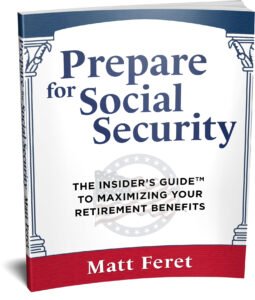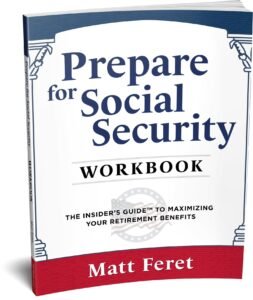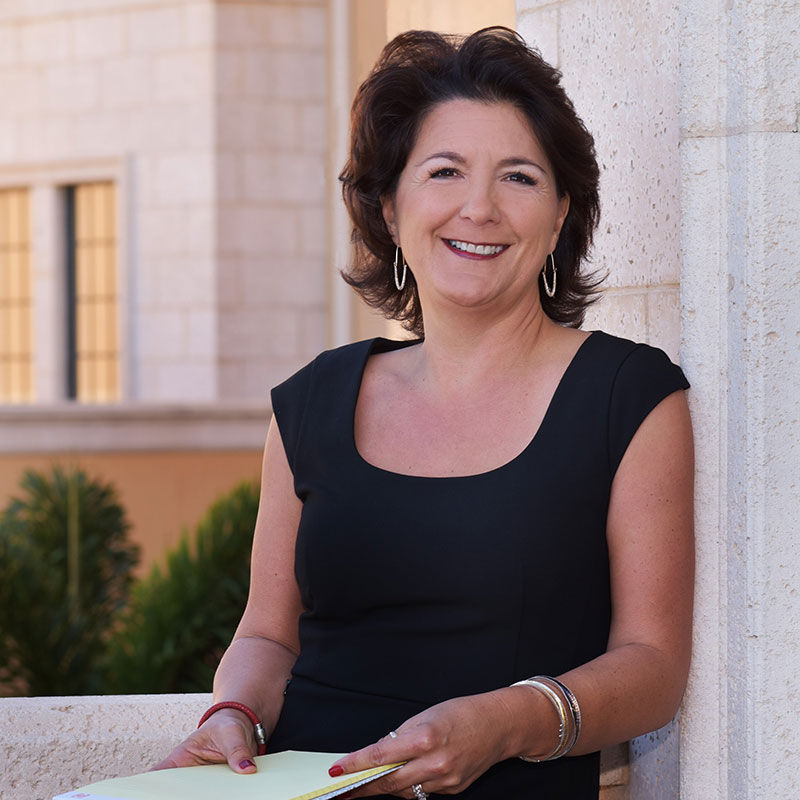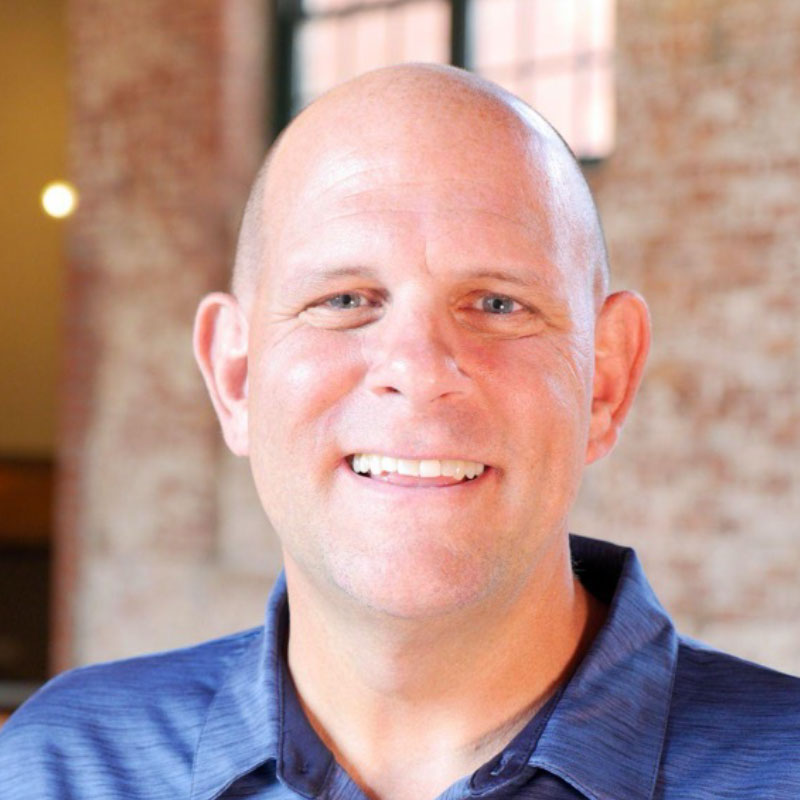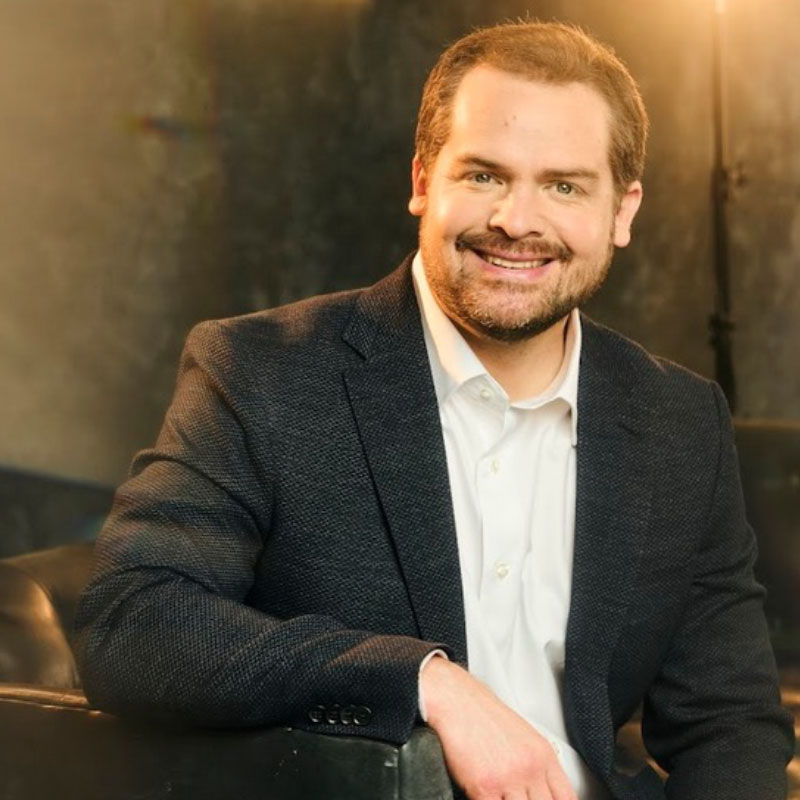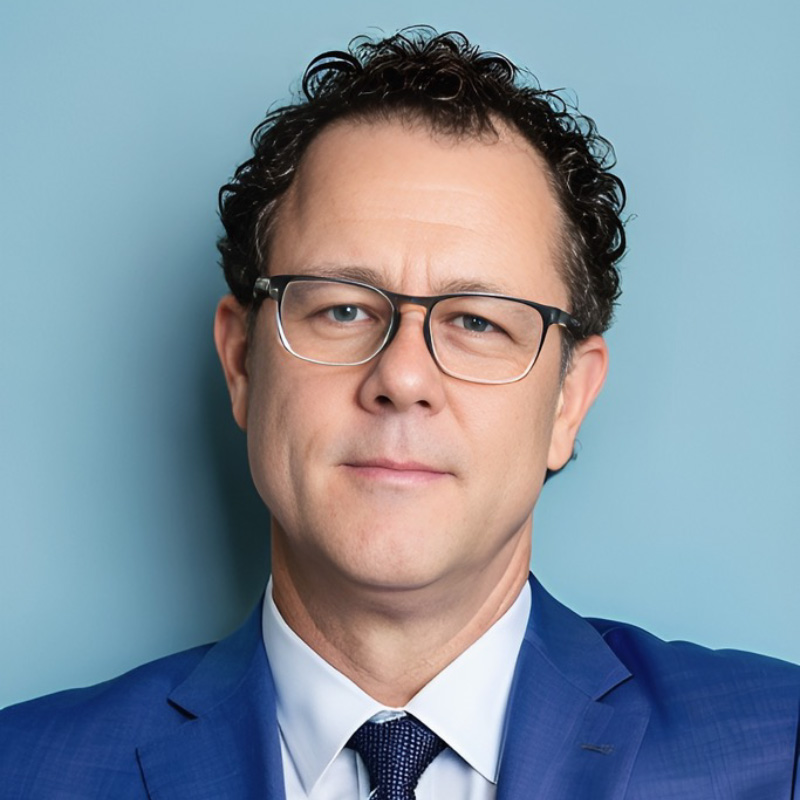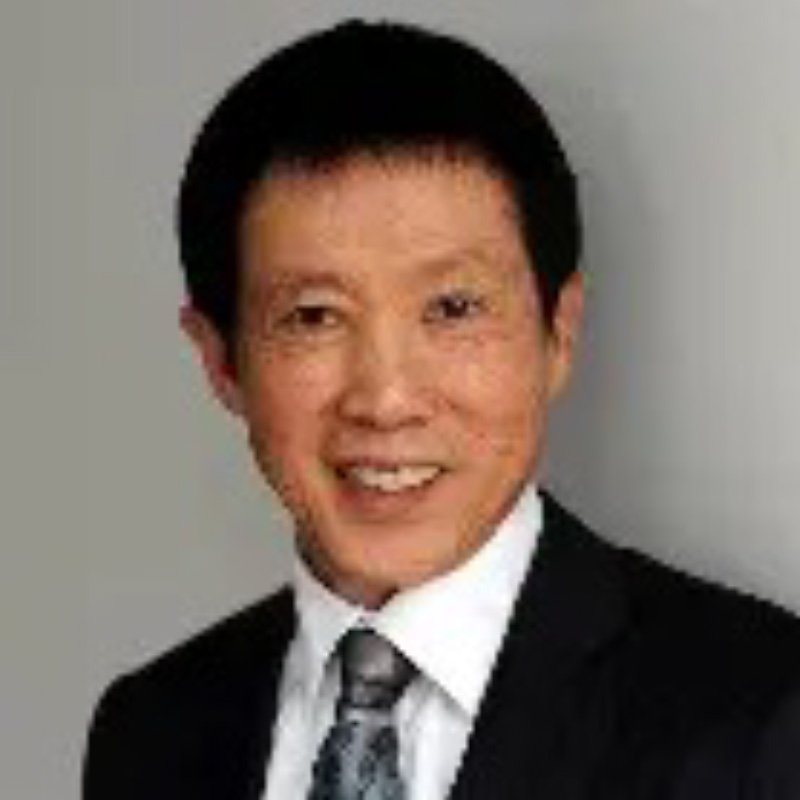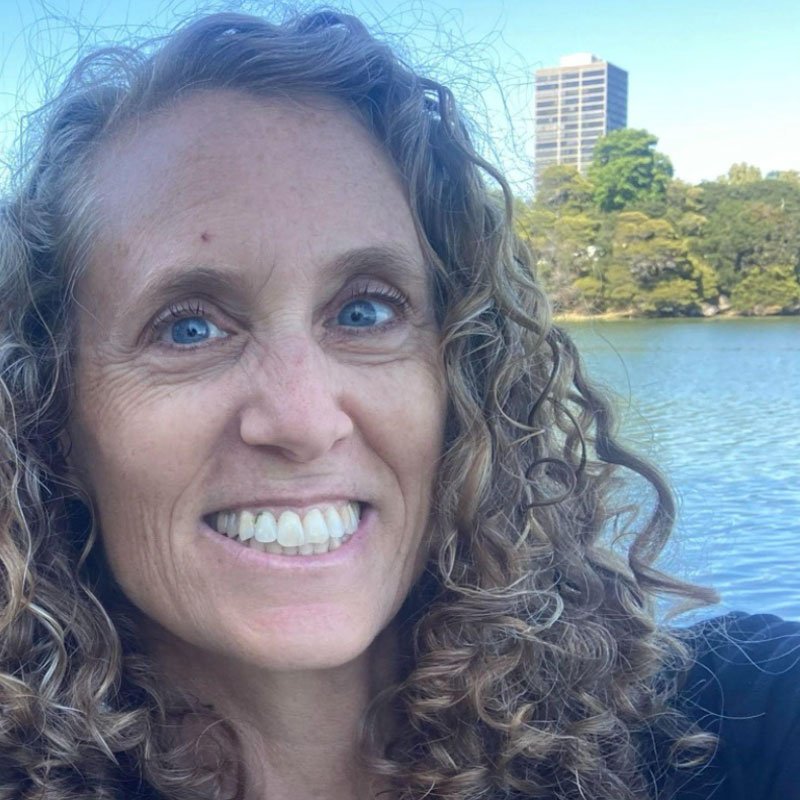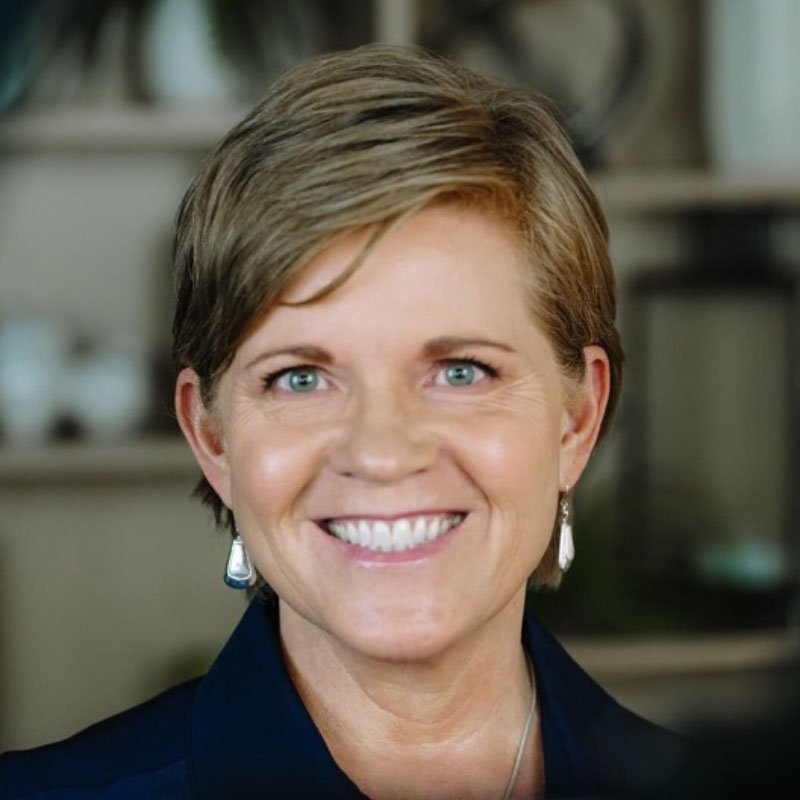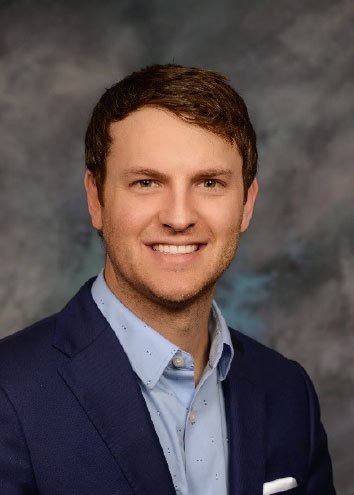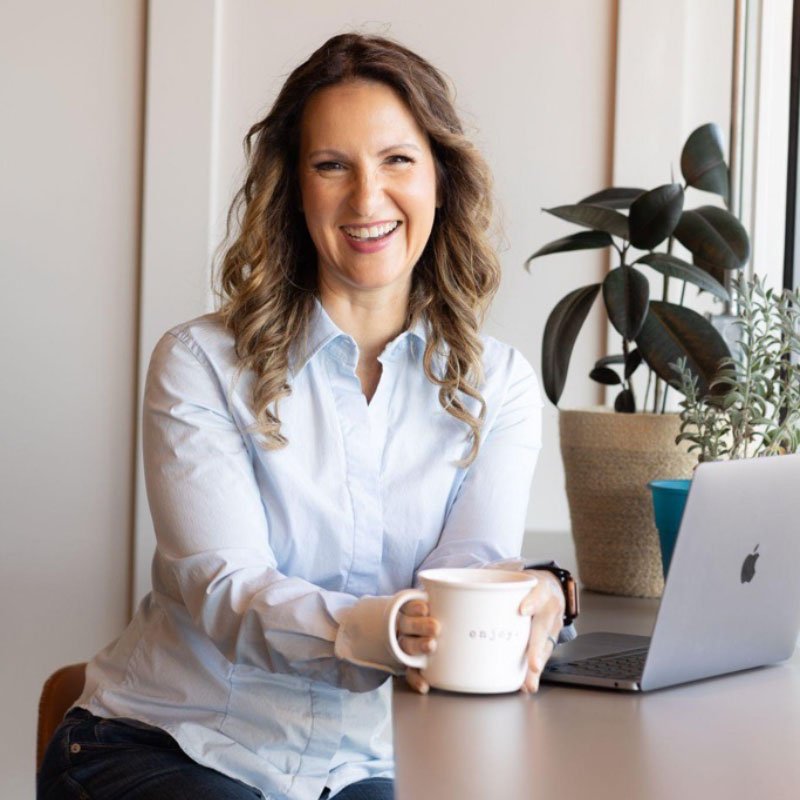#80
Share This:
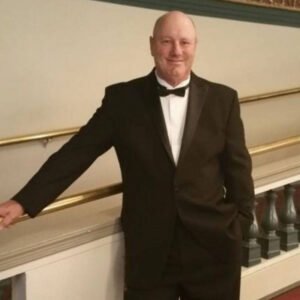
In this episode of The Matt Feret Show I interview Howard Crosby, CEO and founder of LGX Energy Corp. We dive deep into the energy industry, discussing everything from oil and coal production to electric cars and renewable energy. Howard clarifies common misconceptions about the energy industry and provides listeners with educative resources to learn more about global energy production. Finally, we discuss how the energy industry may provide investors with the opportunity to expand their portfolio.
If you enjoyed this episode of The Matt Feret Show, you may also enjoy:
How to Use Life Insurance While You're Still Alive with John Ensley, ChFC
The Balanced Wealth Approach with Author and Financial Advisor, Tom Hine
Medicare Made Easy: Insider Tips from a Decade of AEPs with Olivia Richardson
Listen to the episode on Apple Podcasts, Spotify, Deezer, Podcast Addict, Stitcher, Google Podcasts, Amazon Music, Alexa Flash Briefing, iHeart, Acast or on your favorite podcast platform. You can watch the interview on YouTube here.
Brought to you by Prepare for Medicare – The Insider’s Guide book series. Sign up for the Prepare for Medicare Newsletter, an exclusive subscription-only newsletter that delivers the inside scoop to help you stay up-to-date with your Medicare insurance coverage, highlight Medicare news you can use, and reminders for important dates throughout the year. When you sign up, you’ll immediately gain access to seven FREE Medicare checklists.
Quotes:
“Everybody, every investor should have some exposure to energy in their portfolio. After all, it's the basis of civilization. You've got to have it.”
“There's a tremendous amount of misinformation and misunderstanding about energy and where it comes from and how it's generated. In fact, this is pretty much without exception, all the energy in this planet comes from the sun one way or another. It's all solar energy.”
“Treat energy the way it should be treated, as a priceless commodity. Don't waste it and use it efficiently. That's the ticket really. When we came through the major energy crisis in the seventies, one of the things that came out of that is we got a lot more efficient in not wasting energy, improved insulation building codes improved so that we conserved energy. We got a lot of where we needed to get to back then by conservation methods. And conservation is still the cheapest thing you can do to save energy.”
#80
Selected Link from the Episode:
Host’s Links:
All Things Medicare: prepareformedicare.com
Decoding Social Security: prepareforsocialsecurity.com
My Written Works on Amazon: www.amazon.com/stores/Matt-Feret/author/B09FM3L4WW
The Matt Feret Show YouTube: www.youtube.com/@themattferetshow
Network with me on LinkedIn: http://www.linkedin.com/in/mattferet
Follow me on X: twitter.com/feret_matt
See behind the scenes on Instagram: www.instagram.com/matt_feret/
Join our community on Facebook: www.facebook.com/themattferetshow/
Guest’s Links:
LinkedIn: https://www.linkedin.com/in/howard-crosby/
LGX Energy Corp.: https://www.lgxenergycorp.com/
Full Show Transcript:
Announcer:
This episode of The Matt Feret Show is brought to you by the Brickhouse Agency. Brickhouse is a boutique independent health insurance agency that focuses on finding the right Medicare coverage for folks across the country. Matt's wife, Niki, is the heart behind Brickhouse. She's great at making confusing things clear and is passionate about helping people find a Medicare insurance policy that suits their individual needs. To schedule a free one-on-one appointment with Niki or a member of her team, head on over to brickhouseagency.com or simply call (844-844-6565), and someone will help you schedule a phone call or a Zoom meeting. The consultation is free because the insurance companies pay Brickhouse, not you. There's never any pressure or obligation to enroll. Your clearer, simpler Medicare journey is just a call or click away. brickhouse agency.com. Not affiliated with or endorsed by the government or federal Medicare program. Contacting Brickhouse Agency LLC will direct you to a licensed insurance agent.
Introduction to Howard Crosby and Natural Resource Development with Matt Feret [1:09]
Matt Feret:
Hello everyone. This is Matt Feret, author of Prepare for Medicare and Prepare for Social Security Insider's, guidebooks, and online course training series. Welcome to another episode of The Matt Feret Show, where I interview insiders and experts to help light a path to successful living in midlife retirement and beyond. Howard, welcome to the show.
Howard Crosby:
Hey, Matt, it's great to be here.
Matt Feret:
I'm glad to have you here. So, we start off by asking you to tell everybody what you do, how long you've been doing it, and how you help people.
Howard Crosby:
Oh, well, I guess what I do is for the past 40 years, I guess, or better, I've been involved in natural resource development projects, oil and gas projects and mining projects. And I've been doing that since not long after I was out of college. I graduated with a bachelor's degree in history from the University of Idaho with no idea what I was going to do for a career. And I ended up, after a couple of iterations through some jobs, I worked briefly as a technical writer for Westinghouse at their Hanford plant. From there, I got a job working for United Nuclear. The next thing I knew I was underground in a uranium mine, and I learned an awful lot about mining and about energy in general. My sister was married to a fellow who was at one time the deputy Assistant Secretary of Energy for the United States, and an extremely bright guy who wrote numerous books about the energy business.
And I learned a tremendous amount from Bob over the years, always respected his opinion on all sorts of topics related to energy. And of course I had a very, very successful oil and gas company back about 20 years ago that we had a great run on. And about a year and a half, almost two years ago now, my partner and I took a plunge back into the oil and gas business when we started our current venture, LGX energy. We felt the time was, once again, very propitious to use a big word, propitious, time to be entering the oil and gas business. And we think that there's a lot of upside remaining for us in what we're doing there.
Matt Feret:
So that is the biggest word that I've ever heard on the podcast, including some doozies.
Howard Crosby on his Relationship with Uncle Bing Crosby [3:40]
Howard Crosby:
But again, one of the topics I often get asked by people because of my name, are you any relation to Bing Crosby? And of course, he was very fluent in the English language as well. And he was actually my dad's brother, my uncle. So, I actually knew him quite well. I was a college golfer back in the day, and I played a lot of golf with Uncle Bing, but he had quite a vocabulary and was capable of dropping out the four or five syllable words from time to time.
Matt Feret:
Very nice. Alright, now you got a story time a little bit. You're playing golf with Bing Crosby?
Howard Crosby:
Well, many, many times, but actually I've got a lot of stories. We could waste the hour on that, but one time we played 18 holes at the San Francisco Golf Club and finished up around noon as I recall, and we were going to meet my dad for lunch at a hotel in downtown San Francisco. So, we called a taxicab, and we get in the back of the cab dressed in golf attire. And my uncle wasn't wearing his hairpiece, which he called his scalp doily, and he never wore it unless he absolutely had to wear it on screen or on television. So, his head looked pretty much like mine. And as we're driving down the road, the cab driver keeps looking in the rear-view mirror, and finally we come to a red light and he turns around, he said, “Say, Mister, did anybody ever tell you you look like Bing Crosby?” And Knuckle Bing goes, “Why? Well, I know. Why would they say that? I'm a much better looking man than Bing Crosby”. So, we get to the next red light, the guy turns around, he says, “Now you listen, Mister, you wouldn't mind looking like Crosby if you could have his money.” So, he never did let on. He just laughed. Anyway, lots of stories like that.
Matt Feret:
I got to ask you, were there any other good stories that we don't know about that I guess maybe enough time has passed, I don't know, his interactions with other stars or politicians of the time that were interesting and fun?
Howard Crosby:
Well, he stayed completely apolitical because he was often asked this, that or the other, and he said, look, I'm an entertainer. I don't have any specific gift in terms of what any other citizen would have. So, if people would give too much weight to what I say, and there's no reason to, that was sort of his attitude. But yeah, I mean, he interacted with everybody. I guess one of the best stories for the audience today is at his very last Christmas show, which was filmed in London just three weeks before he died, he had a guest star on by the name of David Bowie from a totally different generation and genre of music and everything else.
So, when they were going to tape the show the morning of the taping, David Bowie showed up and he had set ahead a lot of requests about how the song would be done and what part he wanted to sing and what key he wanted to do it in and so forth. And so, he meets my uncle for the first time and he says, “Oh, Mr. Crosby, I'm sorry if you felt I was trodding too much, but I just wanted to make sure that everything came out good.” And B said, “Oh, David, don't worry. Listen, we'll do this however you want, and I'll get in there somewhere. It'll be okay.” So, it ended up actually being a remarkably successful recording, and it's still viewed constantly, even to this day, 50 years later, it's amazing.
Matt Feret:
I was going to say, I'm a pretty big music fan, and I got to tell you, I have never run across Bing Crosby and David Bowie singing something together.
Howard Crosby:
Well, you'll have to look it up, YouTube.
Matt Feret:
I'm going to look it up.
Howard Crosby:
It’s a Christmas Song, so it's not quite time yet.
Matt Feret:
Doesn't matter. That's still awesome. Bing Crosby and David Bowie.
Howard Crosby:
I want to get off this, but I think one of the things that I've always told people I'm kind of the most proud of about my uncle is in 1932, he became the first major recording star to record with a black music group and give them full attribution on the record when they did a song called Dina with the Mills Brothers. And again, you can look that up on YouTube or on wherever you find stuff like that. And it's a fantastic recording. And one of the Mills brothers, actually, I had to listen to it a couple of times. One of the Mills brothers actually makes his voice sound like a bass. You think you're hearing a bass being played, and if you're a music person, you'll understand what you're listening for when you listen for a bass. Well, there's no bass. It's one of the mills brothers making his voice sound like a bass.
Matt Feret:
Wow.
Howard Crosby:
It's incredible. But that was the first time that that ever happened. And then later, he co-starred with Louis Armstrong in 1936 in a film called Pennies from Heaven. And in post-production, these studio executives told him that they need to cut some of the Armstrong scenes out. They're afraid it'll hurt ticket sales in the south. And Bing said, well, then fine. Cut out an equal number of my scenes.
Matt Feret:
Good for him. Different time and not one that's forgotten, but good for him. I did not know that about Bing Crosby. Huh. That's another thing I'm going to do this afternoon. When we're done, I'm going to go look him up and read even more about him. Thank you for those.
Introduction to Energy and Common Misconceptions with Howard Crosby [9:49]
Howard Crosby:
Yeah, no problem. Matt. Let's get on to energy and how energy is needed by all of us all the time.
Matt Feret:
Definitely, definitely. Like you said, let's talk about energy. Something we all use and need and think about. And obviously when you think about it from an investment standpoint, there are mutual funds and individual stocks, and we all know Warren Buffet plays in that space as well around the energy piece. You mentioned mining, there's gold, there's a rush for metals, basically to build other computer parts and iPhones and anything else. Right now, it's in the news, but it's kind of on the subsurface level. All we really hear about is the price of oil, which usually comes with the zero context. And of course, we know the price of the pump, which everybody tends to blame on whatever politicians in power at that point. And then the counter arguments are that person in power doesn't have any sway whatsoever in the price of gas. So, for the audience energy in general, can you start with a little bit of a treatise on where we are in the world with energy and what actually impacts our daily lives, and then we can move on to companies and corporations.
Howard Crosby:
Yeah, I think Matt, the biggest thing is that there's a tremendous amount of misinformation and misunderstanding about energy and where it comes from and how it's generated, in fact is pretty much without exception. All the energy in this planet comes from the sun one way or another. It's all solar energy. It's just that a lump of coal has been concentrating the sun's energy under heat and pressure for millions of years, as has a barrel of oil or whatever. Whereas if you cut down a tree, the wood that you burn has only been concentrating solar energy for maybe 80 years. Or if you're burning switch grass, it's only been concentrating it for a few months. You see? So more intense energy, the longer that the solar energy has been concentrated, the only exception would probably, and because everything else, even rivers for hydroelectric power or tides or solar energy or wind power, all caused by the sun. And most people have very, very, very limited understanding of the sun. For instance. Matt, if I were to ask you how many of our planet earths could we fit inside the sun, what would you say?
Matt Feret:
Oh, I know that was a middle school science question. We did it with a big, big, big bucket, and it was hundreds, probably.
Howard Crosby:
It's actually 1.3 million. The sun is so big relative to the solar system that if you actually tried to depict it on a map, you wouldn't even see Jupiter much less earth. So, the big yellow ball is responsible for all the energy on this planet with the possible exception of uranium. But even that was probably formed when the earth itself was formed. And of course, all the sun is a gigantic fusion reactor, very gigantic, as it turns out. And of course, in terms of the world's current energy picture, most of all of the world runs on fossil fuels, oil, natural gas, or coal. That's what most of the world's energy relies on, and that's particularly true in the third world or countries that are trying to lift themselves out of dire poverty. The limiting factor is availability of energy and inexpensive energy. Now, there are so many trade-offs when you start looking at different forms of energy. Now, for instance, oil, which is the most important commodity in the world, 2.1 trillion of transactions in oil last year, for instance, versus less than half of that amount for all metal commodities combined. So, it's a big difference. But if you look at oil, I mean, it's involved in over 6,000 different products that we use every day, every week, every month, including the computer that you and I are talking on. Components of it are made from oil. The clothing that we're wearing has probably got oil components in it. The glasses that I'm wearing are made from oil. The cell fold that everybody carries around has got oil in it. So, oil is in everything. 6,000 different products that we use all the time cut from petrochemicals. And another interesting fact that very few people fully realize in 94% of the in the United States was engaged in subsistence farming. Today, farmers comprise less than 2% of our total workforce, and yet they produce hundreds and hundreds and hundreds of times in terms of output of food than they produced when 94% of our workforce was involved in farming. Now, the reason for that is very simple fossil fuels. It's fossil fuels that power the tractors and the combines and the heavy equipment that allows a farmer to be massively more productive than he was when he had a mule pulling a plow. But even more important is the availability of natural gas-based fertilizer. So, most of the fertilizer that allows us to have a shot at feeding 8 billion people on this planet is because of natural gas. You simply can't feed the population of the world without natural gas-based fertilizers, full stop.
Matt Feret:
And we're talking nitrogen.
Howard Crosby:
Obviously, energy is a complex subject. And what my brother-in-law used to say, who was one of the smartest people I ever knew on the subject is he said, look, the only way for the world to go forward is an all-of-the-above solution. You've got to use all the available sources of energy that we have unless and until we cross the bridge to a hydrogen future at some time down the road, which is at the very earliest, many decades away. So that's really kind of a summary of it, but all of them are important. But I think what's unfortunate is a lot of the political movement in the last few years has demonized some forms of energy vis-a-vis the so-called green solutions without understanding that number one, society needs all forms of energy. Number two, a lot of the so-called green forces of energy aren't really all that green when you get right down to it.
Matt Feret:
Yeah. I was going to say I watched some Tesla’s drive by when I'm out and about, and I go, well, how are they charging the batteries? Pretty sure that's coming from power plants. That may be coal burning power plants.
Howard Crosby:
If you're in 39 states in this country, your electric car is actually less carbon emitting than an efficient Toyota would be. For instance, because of exactly what you said, the power came from some other fossil fuel based source, and also all the fossil fuels that were required in doing the mining to process the materials to build the batteries for your electric car. I don't think very many Tesla owners realize that Tesla is built on the back of child labor producing cobalt in the Congo, which is where most of the cobalt for that battery came from. Nor do they realize the amount of, for instance, the energy that went into those batteries, at least half of that energy was lost in line loss transmission from where it was created before it ever gets into their Tesla. That's something that very seldom gets thought about.
Matt Feret:
All I can think about is where you plug it in, it's linear, right? I plug it into my wall and my wall is powered by a power station that's burning coal.
Howard Crosby:
You're burning a lot more coal because the coal has to make extra energy for all the electricity that'll be lost between the coal plant and your plug in the garage. They would've been more carbon efficient to drive a 35, 40 mile an hour Toyota Corolla. They would be putting out less carbon into the atmosphere. But here's the other interesting thing. I drive a gasoline powered Hyundai at the moment. When I send that car to the junkyard at the end of its life, my gas tank is not going to be a particularly noxious hazardous waste. It'll simply be melted down like any other iron. When it doesn't have any gasoline in it, it'll be empty. But when you take that battery at the end of its useful life, whatever time period that is, it's going to be a toxic mess that has to get disposed of in a landfill. And by the way, that battery in your Tesla is exactly the same as my gas tank. It's exactly the same on itself. It produces zero energy. It depends on energy from an outside source to make the car run.
Matt Feret:
So, will we ever get to a point then in electric cars or battery powered versus natural gas powered or carbon powered? Will we ever get to a point where it's more efficient? Are you saying, I mean, I guess first of all is the power source, but second of all, it's the battery design and its components which are in and of themselves toxic. And as you noted, there's another more important factor and sourced from places that aren't good.
Howard Crosby:
Another factor that nobody looks at, which is if you were to convert, for instance, in my state, I live in California and in my state, the governor has mandated that by 2035, you will only be able to buy electric cars, right? They won't be able to sell internal combustion engine in California in 2035. Well, if we were to get anywhere close to the projections for the amount of the fleet that would be electrified over the next 10 to 15 years, there is no possible way that the world can supply the metal, the different metal elements that would be required to make that happen. Simply, we're already straining for supplies of lithium, which by itself is a pretty dangerous commodity to handle, lots of fire and things. But more importantly, we produce in this country zero cobalt as in none. So, we get all the cobalt from Congo or Russia. Those are the only sources of any commercial quantities of cobalt. We don't produce any nickel except a little bit up in the iron range in Minnesota. And there's a lot of nickel needed. And that comes from foreign sources like Russia primarily or New Caledonia. And most importantly, the world cannot possibly provide the amount of copper that would be required to electrify that much of the transportation fleet. We already know that an electric car takes two to three times as much copper as a conventional car. And then you've got all the charging station infrastructure that's going to require copper copper's already in short supply. And there's been really no development, no infrastructure, no major investment made in new discoveries of copper in the last 15 years. So, the metal I was going to ask to make it happen, period.
The Nuances of Energy Discovery and Mining with Howard Crosby [22:43]
Matt Feret:
I've read the same. I'm glad you're bringing it up. It makes me question though, is it because there's been no R&D, or not enough on the actual composition of the batteries and the components that make up this? And then also discovery, and I'll make an analogy to oil and gas, right? Every whatever, every quarter, people are like, guess what we found? We found a new drill. We're now drilling off the coast of Venezuela, drilling off the coast of Brazil. They're still making discoveries. Is it that they've not yet discovered these rare earth elements or even more copper beneath the surface? Or is it just that we know based upon our research, and I guess what would that be? Geographic, it's not geographic mining. What's it called? Topo-mapping? And do we somehow know that there is a limited supply, and we know 90% of it already and it's not enough?
Howard Crosby:
Well, it's a combination of things, Matt, but let's just basically look at it very simply. Over the last 10-year period when we had the booming stock market, the biotech’s, the technology, stocks and everything worldwide, exploration dollars for commodities went way down. Budgets were slashed, and there just wasn't a lot of money spent on exploration over the last decade relative to previous times. So as a result of less money being spent, less things were discovered. Major mining companies were able to continue to keep their production stable by producing lower grades and things that they could do at the operations that they had. But not a lot of money was spent on exploration. And we know that from the time you discover a new mine, for instance, typically the timeframe before you produce your first pound of metal is 12 to 15 years. So even if we started with a crash program right now to find new copper mines, and they're getting more expensive to find, they're typically deeper lower grade, obviously the highest grade nearest surfaced, easy to find deposits have been found. Does this mean that we're running out on planet Earth? No. But it does mean that it takes longer, more expensive deposits are deeper, and they're harder to find. They're in more remote places that takes more capital investment in planting equipment and infrastructure to get them out. So, it's a combination of factors, but the pure fact is you can't ramp this up fast.
Matt Feret:
And we've gotten pretty good at ramping up oil and oil exploration though, haven't we?
Howard Crosby:
Well, yeah, oil happens a lot faster.
Matt Feret:
Because can we get there with the other stuff with the copper, for example?
Howard Crosby:
Can we get there? No, we, we can't get to the place that they're talking about where we're going to be in 15, 10 to 15 years. It cannot be done, even if double or triple the current copper price because of the timeframe and the lag that it takes to get these things built, you'll never get there.
The Realities of Environmental Conservation and Energy Mining [25:52]
Matt Feret:
So, we won't get there by 2035. What's a reasonable expectation? If you could look into the future, look into your crystal ball with all of the mining and drilling and energy experience that you've got, what's your most realistic assessment from where you sit in terms of when we get to a place where we dare, I say carbon neutral, at least not on a crash course with continuing to pollute the skies that we've been doing for a while. What's your take on that?
Howard Crosby:
Well, ultimately how you get to a less polluting environment is we'll be with the development of commercial hydrogen, or you can get there with nuclear power. And I think the sad fact there is that politics has taken over good science because the new generation reactors that are being built in Sweden and elsewhere have none of the design flaws that existed in the 110 reactors that we have operating in this country now, which are last generation technology, or actually two or three generations back. So, the new generation reactors that are being built now are inherently safe. I mean, a three-mile island on type accident is not even possible under the laws of physics the way these things are designed. So that's how you get there, because nuclear power is the only firm power that does not emit carbon wind power and solar power back, or not firm power.
Matt Feret:
Which is back to the sun, which is basically what the sun is, right? It's a massive nuclear power plant. And I've also read over the years, and I'm probably going to get the countries wrong, that other western European countries are re-embracing it, albeit quietly nuclear power. They're building new and they're building these new generation, correct? The Germany comes to mind, perhaps France.
Howard Crosby:
That's right. And a lot in Asia and other places as well. So, it's happening around the world. It's just not happening here because it's a political football. It's been made political.
Matt Feret:
Okay. So, we as consumers, what can we, so if we can't build a nuclear power plant in our backyard and we can't easily or readily convert anything of hydrogen based into our fuel tanks, this is all happening around us, right? As I sit in my office, as you sit in your home, what do we do? It's going to happen regardless, and there's nothing we can do, or can we do anything? I think that's why people are thinking electric cars, right? At least I can do something. I can be involved in supporting.
Howard Crosby:
It’s virtue signaling when you drive a Tesla, let's be honest. I mean, the thing that obviously people can do is to treat energy the way it should be treated as a priceless commodity. Don't waste it and use it efficiently. That's the ticket really. When we came through the major energy crisis in the seventies, one of the things that came out of that is we got a lot more efficient in not wasting energy, improved insulation building codes improved so that we conserved energy. We got a lot of where we needed to get to back then by conservation methods. And conservation is still the cheapest thing you can do to save energy.
Matt Feret:
Kind of sounds like I can't do much as an individual if I can't buy an electric car because it's actually, well, not hypothetically, realistically, as you say, in 39 states, worse of a carbon footprint than a Corolla.
Howard Crosby:
And do you really want to be supporting child labor in the Congo with your car purchase? No, I don't think so.
Defining the “Peak Oil” Crisis with Howard Crosby [30:06]
Matt Feret:
No, I don't. I'm going to use the phrase, I don't know if you're going to laugh at me, and you might, again, you're the expert. I'm not. But peak oil, every so often people come by and say, peak oil is going to be 2050, 2075, and when peak oil happens, the world will run out of oil. We'll descend into darkness and calamity will ensue.
Howard Crosby:
Yeah. So peak oil was a term that was developed by a shell scientist by the name of King Hubbard back in the late fifties. And King Hubbard was a very, very smart guy, and he predicted that because of the rate of discovery and depletion of super giant oil fields, this feels like the gigantic South Texas discovery around Spindletop or the giant field in Saudi Arabia because of the rate of depletion and discovery rates of super giant fields that you could predict accurately when each country's oil would peak. And once it hit that peak and began a decline, it would never again reach that peak. And so, in 1957, king Hubbard predicted that US oil production, and we were the dominant oil producer in the world at that time, US production would peak in January of 1972 at 9.2 million barrels a day and would start declining and would never again reach that level. And that was happening by 2003, 2004. I was a believer in King Hubbard's peak oil scenario because our production in this country had gone straight line down on the backside of a bell curve to 5.1 million barrels a day in dropping no indication that it would ever be able to pick up beyond that what King Hubbard didn't factor in. And as a previous devotee of the peak oil concept, neither did I, was the impact of new technology at oil extraction. So, what happened in the aftermath of the crisis that drove oil prices over a hundred dollars a barrel is we developed new technology for extracting oil from tight formations that were never considered viable oil deposits in the past. For instance, the Bakken formation in the Williston Basin of North Dakota, it's estimated that the Bakken formation alone contains more oil than the entire Middle East, but it's in tight rock formations that require heavy fracking to liberate it. So, at prices that are acceptable for traditional reservoirs, you can't possibly not only make any money, but you can't even recover your investment in these very tight formations unless you have oil prices significantly above $70 a barrel for a protracted period of time that would allow you to recover your capital. So, the answer is that new technology, and we've seen us production increased now over the past decade, over and above where it was back in January of 1972. So, Hubbard's Peak was blown out of the water by new technology and oil extraction.
Matt Feret:
And from a geopolitical standpoint, we obviously still get the majority of our, well, there was a couple of points I can remember in the news that we weren't energy independent. Let's think about that phrase for a second, and I know it's a political phrase, but I'll say it. Energy independence. We've been getting most of our oil from a very fractured relationship and wrought with geopolitical risk and military involvement from the Middle East for a very, very long time. And I, as a casual observer and reader, have followed the last 10 years of US oil production, mostly in obviously not trade magazines, what I read in the Wall Street Journal and the other publications that I read every day. So is it incumbent upon us to continue to explore oil here even at the same time our federal government is pushing us towards more renewable energy sources. Is that helping us? Is that hurting us here? Is there enough left here? And take that into consideration of the interests and what we've been doing and buying from the Middle East and that situation. I guess from, if you could make policy, yeah, if you could make policy there, what would you make?
Howard Crosby:
There's a lot to unpack there a lot, but I'll just dive right in. So, first of all, according to the United States Geological Survey, which by the way, historically I've felt that was some of the best money that we ever spent on the federal level. The US GS has done a fabulous job over the decades. But anyway, according to the US Geological Survey, there's more undiscovered oil in the United States than any place else in the world. So, we've got a lot of it here if we want to get it. A lot of it's on state land, federal land. There’re obstacles and there's places and so forth, but there's a lot of it here to be discovered. So that's number one. Number two, actually, we don't get hardly any oil from the Middle East at all. Even when we were importing oil back in the early part of the new century, and we were getting a lot of our oil, 60% was coming from overseas. We got most of it from Canada and from Nigeria, very little of it came from the Middle East to none. However, oil is a fungible product in the world market. It doesn't really matter where it comes from. Oil is oil as long as it's the same quality of oil. And so even though we weren't getting it from the Middle East, the Middle East is still controlling supply because Japan has to import all of their oil. China has to import oil, other countries have to import oil. So, no matter where you get it from, it's fungible in the world market. But the idea that we were importing it directly from the Middle East wasn't exactly true. And for obvious reasons of logistics, it's cheaper to get oil from Calgary than it is to get it from Qatar, right? Cheaper to get it from Nigeria than it is to get it from Azerbaijan. So those are factors like that than I think you have to look at.
Matt Feret:
I guess I just didn't realize that. I kind of felt like I've seen pie charts of the amount where we get our oil right in the Middle East is always in there at an over 50% piece. Not true.
Howard Crosby:
Well, not directly, indirectly, sure, because it supplies that percentage of the world's oil. It's just that more of their oil ended up going to Japan and not here. But if it came here, so it's practical, Nigerian oil would've to go to Japan. Right?
Matt Feret:
Yeah. So, it's a practical choice, not necessarily a geopolitical choice, is maybe what you're saying.
Howard Crosby:
That's right. Yeah, that's right. Yep.
The Future of Renewable Energy with Howard Crosby [37:35]
Matt Feret:
Okay. Interesting. I didn't know that. Thanks for clearing that up. Alright, so last question on the environment and fossil fuels and everything else, what's your feeling again, you've been in the mining and drilling space for a very, very long time, so you've seen massive amounts of technological advance and access to information and background and data that certainly I don't have and probably a lot of people listening don't have. Can you give me a perspective on the new initiatives that we and other, I guess western countries have been doing about offshore wind, solar? Are those in your mind replacement opportunities or are they, as you said earlier, you need them all? If you put 5% here and 2% there, and 7% there, well, okay, then you've got 14% of your problem solved. You'll never get to 100 or you'll never replace oil and gas, but you'll get less reliance on it. Do you see it that way, or do you see that at some point in human, we can build more efficient? To your point earlier, nuclear power plants plus wind plus solar.
Howard Crosby:
Well, I think there again, there's quite a bit to unpack there, but the reality is that solar power works really great. Where I live here in Palm Desert, sun shines 350 days a year. We get a lot of direct sunlight. It gets very hot here in the summer. And solar panels on people's roofs work really great. I'm not sure I forgot to ask you where you are, but-
Matt Feret:
Outside of Chicago, no, it wouldn't work well here.
Howard Crosby:
No, it would not work well outside of Chicago. It's gray, cloudy, cloudy days, too much rain, and you're not going to have enough direct sun exposure. And even at that, the sun would be at the wrong angle three or four months out of the year to give you any power out of those solar panels. So, forget it. In Chicago, it's not appropriate. It's very appropriate in the desert of northern Chile, for instance. Now wind, I think again, there are places where wind is okay. I could tell you a bit of a story. Before I moved to California, I lived in Walla Walla County in southeastern Washington, and the largest wind farm in the country was built there about 15, 20 years ago, 800-megawatt power of windmills along the Columbia River Gorge, owned by Florida Power and Light. Now, if you look at a map of the United States, Florida's quite a way from southeastern Washington.
Matt Feret:
Sure is.
Howard Crosby:
About as far as you can get. About four or five years ago after it'd been up and running for a while, I had lunch with the project manager one time, and I said, how's the windmill? How's the wind project doing? Oh, it's all right. He said, well, that's not exactly a ringing endorsement. Well, he said, we have some problems. I said, like, what? Well, there's a lot of maintenance on them, number one. Number two, he said that we kill a lot of birds. The windmills chop up a lot of rafter and there's a lot of maintenance requirements on them and whatnot. But he said, the biggest problem is we have to, as a utility, we have to provide power to our customers at peak load demand. And typically, the wind didn't blow in at all. So, we have to keep a power plant on standby to kick in so we can run people's air conditioner in Florida when the wind isn't blowing in Walla Walla County. And I said, well, you guys had to know all of that. I mean, why'd you invest 800 million in this wind farm? Well, he said, we needed the green credits. Now this is 15, 16, 17 years ago, whatever we needed the green credits. I said, what do you mean? He said, well, by building the wind project up here, we got enough green credits that we were able to build a 1500-megawatt coal-fired power plant in Ocala, Florida. So the windmills in his mind were sunk costs that were part of the coal plant that they really needed, otherwise it never would've been built at all. And Germany, which was the leader in wind power, they got there before anybody else. They're not so happy about it Now, the windmills had reached the end of their useful life. There was no money set aside for decommissioning of them. The blades are a nightmare to get rid of, and they're firing their coal-fired power plants back up again because the windmills just don't work.
Matt Feret:
It's not giving me hope for helping out some climate change or getting off the mama big oil. It's not sounding too good, Howard.
Howard Crosby:
Well, look, there's so many things that we can do to reduce pollution that are very achievable. I mean, so many things. First of all, the coal plants that we have today produce less than 10% of the emittance and pollutants that they did 25 years ago. We've cleaned them up a lot. Natural gas fired power plants are far cleaner than anything that we used to have in the past. And natural gas is so essential for life on earth because of the need for fertilizer that to stop drilling for natural gas is suicidal. We can't feed ourselves without it. As far as oil goes, for instance, high performance race cars map, their engine block is made out of titanium. Why? Well, because titanium is lighter than aluminum and stronger than steel and has a melting point way higher than either. So, they can run that engine really hot, they don't need a radiator because titanium isn't going to melt. And as a result, they get much more complete combustion of the fuel, way less pollution, and way more power. So why don't we make all the engines out of titanium? Because titanium is very expensive because of the expensive process of refining it from TIO two into titanium metal. But there's research going on that could drastically reduce the cost of producing titanium metal. So, if you've made a car's engine block out of titanium and more of the parts were made out of titanium instead of iron steel, you've just about solved the pollution problem.
Matt Feret:
Yeah, I've never read that.
Howard Crosby:
Why are the new generation aircraft so much more efficient? The Boeing 787 Dreamliner and the Airbus New Generation, A 350 and a 380? Well, because the hull of those airplanes are made out of titanium metal, so those airplanes are so much lighter and so much stronger than the earlier generation aircraft that they use way less fuel to travel the same distance. And it's all because of the titanium in the hull.
Matt Feret:
Fascinating.
Howard Crosby:
Many, many, many ways that we could attack the problems that are more achievable than the direction that politicians would have us go.
Investing in Energy with Howard Crosby [45:04]
Matt Feret:
Sounds like it. Yeah, I definitely learned some new perspective on this. Before you go, I'd said earlier in the show, I wanted to talk a little bit about investments. You've been in this field for a very long time, right? We've got ETFs, mutual funds, individual companies that also I think tend to ebb and flow with new discoveries with federal regulation, with the political climate, just like all stocks and bonds, I guess. And I am only an amateur investor, so none of this is investment advice. But how about perspective? You've got more than enough, I think, experience.
Howard Crosby:
Everybody, every investor should have some exposure to energy in their portfolio. After all, it's the basis of civilization. You've got to have it. What we're doing at my company now, LGX Energy, we are developing a portion of the Illinois basin in southwestern Indiana where we think we have a lot of potential and we think we have scientific advantage because of some technology that we've deployed there that hasn't been used before.
Matt Feret:
Wait, a southwestern Indiana?
Howard Crosby:
Yeah. Well, the Illinois basin covers almost all of Illinois, where you live. Not Chicago, though it doesn't get up that far, but the southwestern part of Indiana and the western half of Kentucky, and it's been the fourth or fifth most prolific oil production region in the country since it was discovered in the 1890s. In fact, you may not know this.
Matt Feret:
I had no idea. I knew there were coal mines and there's coal in central Illinois, in southern Illinois.
Howard Crosby:
Lots of oil as well. And really the first a hundred-million-barrel oil field in US history was discovered by John D Rockefeller in eastern Indiana in 1890, and that's how he became the world's first billionaire.
Matt Feret:
I had no idea.
Howard Crosby:
A lot of ongoing production and ongoing development and a lot of opportunity that we're experiencing in southwestern Indiana. But there's a lot of different ways, as you mentioned. But I just think energy of some sort should be a part of everyone's portfolio. And I think for investors with the right degree of risk tolerance and also want to have a little bit of excitement and adventure, take a look at what we're doing, LG X energy corp.com, we come to one of our webinars and learn all about us. That would be another way to learn more about oil and energy.
Matt Feret:
Is the way to put this into your portfolio, perhaps in that whole ETF mutual fund or individual stock piece, or are there alternative investment opportunities specifically in the investment field?
Howard Crosby:
And there's all kinds of alternatives in oil, for instance, there's direct participation in wells, there's limited partnerships that have certain tax benefits, and then there's equity investments like buying individual stocks or portfolio. So, it's all out there. There's a lot of different ways a person can go about it.
Matt Feret:
Why do you think it is when you talk to, or when you read the old, I think I saw something today that the 60/40 splits had its worst year on record recently in terms of stocks and bonds, and most people don't, or even financial advisors don't even talk much about having energy in portfolios. Do you think there's an aversion there for, I guess the political sensitivity of it, or just a lack of knowledge and understanding?
Howard Crosby:
The biggest conference that we have in the oil business occurs in Houston in the spring. It's called nap, the North American Petroleum something or other exposition, north American Petroleum Exposition, I think it is. And everybody that's anybody in the business has a booth there. And this would include drilling companies, service companies, seismic companies, producers, explorers, everybody's there. And historically, about 30% of the exhibitors at NAP were banks or investment funds that invested in oil. About 30% of the exhibitors this year, the percentage was zero, 0%. So, the stigma that's been created by demonizing fossil fuels has made a lot of traditional funders of energy projects reluctant regardless of the, I mean, the economic potential of the investments. So, this ESG stuff, it is potentially going to have a very, very serious impact to the extent that we don't continue to develop needed energy.
Matt Feret:
Very interesting, and thanks for the story. Yeah, I was thinking to my industry conferences and saying, well, what if this entire section 30% just didn't show? Yeah, that would be a bit of a canary in a coal mine, not to use that expression as any for sure. Although it was a little funny, right? It was good usage. This has been really fascinating, and I know we could talk about this, and you'd have to educate me more, but I'm at the end of what I know if I knew anything about oil, gas, and natural resources. So, you've been very patient with me, and thank you for breaking it down into layman's terms for me. Before we go, are there any questions? Gosh, we covered green energy, we covered oil, we covered peak oil, we covered investments. We covered a little bit about Bing Crosby. What else around this topic? I know there again; you said mining earlier. We didn't even talk about that. We talked about a little bit, but gold for example. I know you've been on record on a couple of takes on gold. Are there any other questions about what we talked about today that I didn't ask that I should have?
Howard Crosby:
Oh gosh, Matt. I could probably go on for hours on these topics because it's what I've spent my life doing and studying and learning about, I guess. Yeah, no, I think we've covered a lot of ground today. And I think, obviously, I think if anybody's interested in what we're doing directly, as I say, go to our website, LGXenergycorp.com, and you can probably learn even more.
Conclusion and Final Thoughts with Howard Crosby and Matt Feret [51:51]
Matt Feret:
And what about if I had a takeaway? Again, I'm a consumer, that's what I am. I'm a US consumer, and I'm thinking about the quality of my life, the quality of my kids' lives, and the quality of the grandparents' lives. How do I think about what I hear and see on TV or in the media or on my smartphone? You've summarized a lot of that up before, but what would you take me through? What energy independence and what conservation and what thinking, I guess, green and thinking and being a steward for our environment or of our environment, what would that mean to me and how can I do more and make sure that after I'm gone, generations are in a better place than perhaps today?
Howard Crosby:
Yeah. Well, I think one of the challenges, the 21st century, the third decade of the 21st century that we're now living in, is that there's so much information available from so many sources that it's easy to get confused. And I think one of the worst mistakes that people can make is to get locked into their own echo chamber and only listen to the side of the news that they want to listen to. And it is difficult, I think, to sort through all of the information that's out there, but unfortunately, that's what you have to do. You've got to expose yourself and then use your own best judgment.
Matt Feret:
Well said. And that can be applied to many, many areas. Howard, thanks so much for being on the show. It was really interesting
Howard Crosby:
Matt. Thanks for having me. It's been a pleasure.
Matt Feret:
The Matt Feret Show related content, publications, and MF Media LLC is in no way associated, endorsed, or authorized by any governmental agency, including the Social Security Administration, the Department of Health and Human Services, or the Centers for Medicare and Medicaid Services. The Matt Feret Show is in no way associated with authorized, approved, endorsed, nor in any way affiliated with any company, trademark names or other marks mentioned or referenced in or on The Matt Feret Show. Any such mention is for purpose of reference only. Any advice generalized statistics or opinions expressed are strictly those of the host guests of The Matt Feret Show. Although every effort has been made to ensure the contents of The Matt Feret Show and related content are correct and complete flaws and regulations change quickly and often. The ideas and opinions expressed on The Matt Feret Show aren't meant to replace the sage advice of healthcare, insurance, financial planning, accounting, or legal professionals.
You are responsible for your financial decisions. It is your sole responsibility to independently evaluate the accuracy, correctness, or completeness of the content services and products of and associated with The Matt Feret Show, MF Media LLC, and any related content and publications. The thoughts and opinions expressed on The Matt Feret Show are those of the host and The Matt Feret Show guests only and are not the thoughts and opinions of any current or former employer of the host or guests of The Matt Feret Show. Nor is The Matt Feret Show made by on behalf of or endorsed or approved by any current or former employer of the host or guests of The Matt Feret Show.


